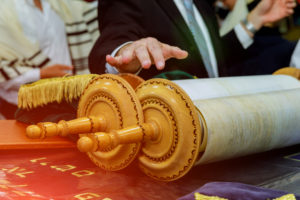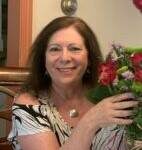
By Rabbi Tsurah August
Parshat Ki Tavo
In a weak voice that touched my soul, the weeping woman asked: “Why am I being punished, rabbi? I have been a good person. Why am I cursed? What did I do?”
I, a student chaplain, stood at her bedside, unable to think of what I could say to comfort her. I didn’t know her, but I could feel her pain and wanted to help. But what could I possibly do to help ameliorate her torment and not increase her suffering?
Fast-forward 20-plus years.
I have heard this plea many times, from patients struggling with pain and fear of dying and not able to comprehend from where their suffering has come. Looking for reasons, blaming themselves, the doctors, God. Entering a new land, fearful of what is coming and tired of the pain of living.
Now, I still don’t have adequate answers. I do know that this is not a time for reasons.
And, just as many times, perhaps more often, I have heard from patients — “Rabbi, I am ready. I have had a good life; I have been blessed.” They are ready to leave the land of the living, but not quite ready to enter the new land.
If they are fortunate to have family members at their bedside, there is a poignant moment when they need to find a way to say goodbye.
Feeling cursed or blessed, moments of great transition need to be honored. It is a time to call upon the rituals that our tradition has bequeathed to us.
Why a ritual? And what has this to do with our parsha, Ki Tavo?
First, why a ritual? Let’s look at the elements of a ritual:
It creates a safe “container” for expressing thoughts and feelings.
It provides a common focus for the participants.
It connects the participants via a shared experience.
It engages body/mind/spirit.
The Viddui is the Jewish end-of-life ritual, done when death is imminent.
In its most basic form, it is a prayer that can be recited by the dying person, a rabbi or another person. It invokes the ancestors, affirms one’s gratitude for having lived their life, asks for and offers forgiveness, asks for lovingkindness for family — and ends with a recitation of the Shema.
Simply chanted, it has great resonance because of the language, especially if in Hebrew; the cadence of the chant; the connection with a long line of ancestors — and the other elements of gratitude, forgiveness and hopes for family. And, saying or hearing the Shema, our affirmation of Divine Oneness, can stir the heart, soothe the mind and bring peace.
When the Viddui is incorporated into a ritual that the family can participate in, it becomes the center of a shared experience of sharing love and memories, through stories, songs, touch tears, even laughter.
I have found this ritual is a potent response to a dying person’s experience, increasing the sense of blessing and diminishing the fear of punishment. And it is a powerful way of saying goodbye for the family, leaving positive images emblazoned on their minds, to remember and comfort them as they mourn the loss of their beloved, knowing they have shown their love and respect.
So why do I bring this into Ki Tavo?
“When you enter the land that the LORD your God is giving you as a heritage, and you possess it and settle in it, you shall take some of every first fruit of the soil, which you harvest from the land that the LORD your God is giving you, put it in a basket and go to the place where the LORD your God will choose to establish His name” (Devarim 26 1-2).
What a moment! When you enter the land that the LORD your God is giving you as a heritage …
We have finally entered the land! We have settled it. We have harvested the first crops from our land. We must do something to mark this moment. And what we are asked to do is very simple, and very difficult. These crops were hard-won — the history of our lives, from slavery, through exodus, to this moment, are in these fruits. And now we are commanded to take these precious fruits and offer them, give them away, we commit to living a generous life, beyond our personal needs, to attend to the needs of others.
Giving these fruits, ritualizes in community, our commitment of living in relationship with the Divine One, the source, Adonai — with all creation, with gratitude. The ritual creates a communal focus, memory and intention. Much as the Viddui ritual does at the final moments of harvest of our lives.
As we enter the Land of 5782, may we all find the ways to nourish us, guide us and inspire us to live a life of blessing, generosity and gratitude.
Rabbi Tsurah August is the in-house chaplain for Jewish Family and Children’s Service of Greater Philadelphia, providing spiritual and emotional support for people facing challenges of loss and illness. The Board of Rabbis of Greater Philadelphia is proud to provide diverse perspectives on Torah commentary for the Jewish Exponent. The opinions expressed in this column are the author’s own and do not reflect the view of the Board of Rabbis.





